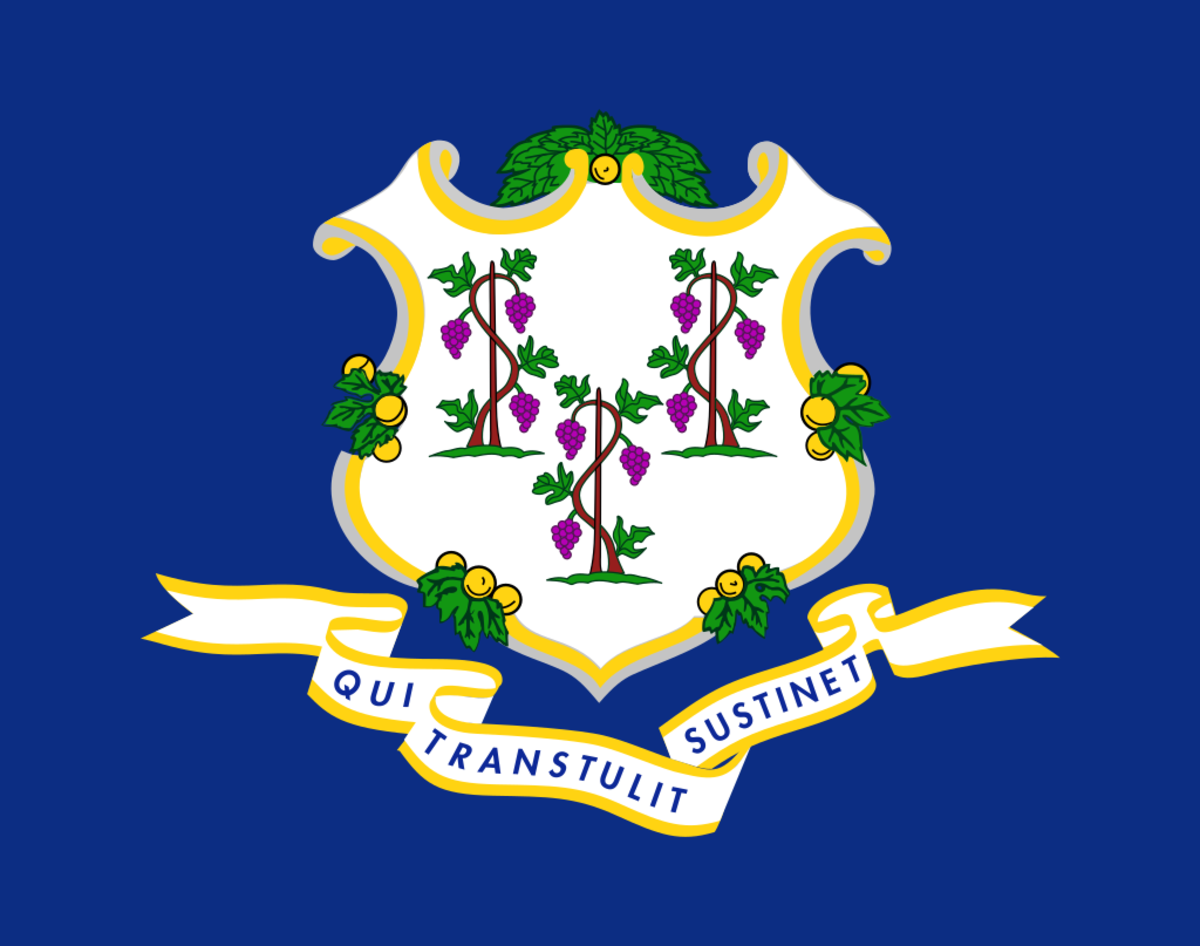Connecticut Employment and Labor Laws

According to 2023 data by the U.S. Bureau of Labor Statistics, there were 5.3 million total employment separations in the country, with 1.5 million accounting for layoffs and discharges. Meanwhile, a year before, in 2022, the American Association of Retired Persons surveyed 2,945 adults aged over 50 in the U.S., 1,340 of whom were working or looking for work. The results of the survey showed that 21% of the respondents experienced age discrimination when they turned 40 years old.
In Connecticut, BLS reported 12,000 layoffs and discharges in September 2023. In 2022, the U.S. Equal Employment Opportunity Commission reported a total of 288 filed charges in the state claiming different types of discrimination in the workplace, such as age, color, disability, race, religion, and sex.
Laws are in place in the Constitution State that give employees legal rights and remedies available to them in such situations. Employment laws specify the rules and regulations governing the relationship between employees and employers. They cover issues that arise in the workplace, such as alleged breaches of contract, unpaid wages, discrimination, and wrongful discharge. Labor laws, on the other hand, deal with the relationship between businesses and labor unions. They cover matters such as union memberships and collective bargaining agreements.
This article provides an overview of employment and labor laws in Connecticut to help workers understand their rights, including victims of illegal or discriminatory acts in the workplace, and hold employers accountable for their actions.
Connecticut’s Fair Chance Employment Act
Getting arrested or convicted of a misdemeanor increases an individual’s chance of having a criminal record, which may impact their work aspirations. Some job applicants risk being denied employment based on their criminal history. To prevent discrimination against ex-offenders during their job applications, some U.S. states like Connecticut enacted the “ban-the-box” law.
Public Act No. 16-83, or the Fair Chance Employment Act, became effective on January 1, 2017. It removed the checkbox on application forms asking if applicants have a criminal record, including prior arrests, criminal charges, and convictions, hence the appellation “ban the box.” The statute gives ex-offenders a fair chance to be considered for a job position in both the public and private sectors.
The “ban-the-box” legislation varies from state to state. Compared to how it is implemented in other localities, Connecticut’s Fair Chance Employment Act only applies during the initial job application.
At some point in the subsequent stages of their hiring process, employers may inquire about an applicant’s criminal history, such as when the position they are applying for requires a fidelity or security bond or a federal or state law requires employers to do so. A fidelity bond, or “employee dishonesty insurance” is a type of insurance protecting businesses against financial losses caused by fraudulent acts of their employees.
The Fair Labor Standards Act and Connecticut’s Public Act 19-4
The Fair Labor Standards Act, administered by the U.S. Department of Labor, is a federal law protecting government and private sector employees against unfair pay practices. It establishes the minimum wage, maximum number of work hours, and overtime pay.
As of July 24, 2009, the law requires employers to pay their employees the federal minimum wage of $7.25 per hour and overtime pay at a rate of 1.5 multiplied by their regular rate of pay for actual hours worked after 40 hours in a workweek.
Many states, like Connecticut, have set their own minimum wage. The state amended Conn. Gen. Stat. § 31-58 by enacting Public Act 19-4, or An Act Increasing the Minimum Fair Wage, on May 28, 2019. The law requires the minimum wage to gradually increase five times over a five-year period.
Starting on January 1, 2024, and each year thereafter, the minimum wage shall be adjusted according to the federal employment cost index for wages and salaries for all civilian workers. The U.S. Department of Labor will calculate this percentage change for the 12-month period that ended on June 30 of the previous year.
The current minimum wage in Connecticut is $15.69, in accordance with Public Act 19-4.
Connecticut Fair Employment Practices Act
Employment discrimination happens when job applicants or workers are treated less favorably due to their backgrounds. Those employed may hesitate to bring up such issues for fear of missing out on promotions or losing their jobs. Whether due to age, disability, gender, race, religion, or other forms of discrimination, employees should not be subjected to any prejudice and deserve equal access to job opportunities and treatment.
The Connecticut Fair Employment Practices Act prohibits employers from discriminating against employees based on various characteristics, such as age, color, race, religious creed, sex, or disability. On October 1, 2022, Public Act 22-82 amended the CFEPA to prohibit employers from discriminating against individuals based on their status as domestic violence victims and added them as a protected class.
This act requires employers to grant such people a reasonable leave of absence to obtain medical care for their mental and physical injuries, counseling, or legal assistance. It also requires them to maintain confidentiality regarding their employees’ status as domestic violence victims.
However, the law allows employers to request documents from employees to support their need for a leave of absence. Examples of supporting documents include court protective orders and police reports.
Furthermore, the act expanded the classification of employers under CFEPA to include those with one or more employees. Previously, the law only applied to employers with three or more workers.
Finally, the act also included any appointed or elected official of a board, commission, council, municipality, or other governmental body in the classification of employees protected under the law. This means that such individuals are now entitled to request reasonable accommodation for their condition, such as disability or pregnancy. Under the modified CFEPA, these employees may also file discrimination claims.
Connecticut Family and Medical Leave Act
The Family and Medical Leave Act, administered by the Connecticut Department of Labor, is a law helping workers in the state take job-protected leaves for medical reasons, such as seeking treatment for their serious health conditions or giving birth and caring for their infants within their first year.
Employees caring for family members with medical conditions or serious illnesses and injuries incurred as service members on active duty are also eligible under this law. Furthermore, those placing children for adoption or foster care or serving as bone marrow or organ donors are entitled to this leave.
The Connecticut Legislature amended the CFMLA, which went into effect on January 1, 2022. Previously, the law provided up to 16 weeks of leave during a 24-month period. Under the current CFMLA, workers are entitled to take up to 12 weeks of unpaid leave during a 12-month period.
They also have the right to return to the same or an equivalent job at the end of their leave. For incapacity due to pregnancy, the law provides up to two additional weeks of leave during a 12-month period. Employees caring for service members with serious injuries or illnesses may also take up to 26 weeks of leave during a 12-month period.
The law only applies to employers with one or more employees. It does not apply to local or regional boards of education, municipalities, or nonpublic elementary and secondary schools. Workers who have been employed for at least three consecutive months or 13 weeks are eligible for job-protected leaves under this law.
Employees of political subdivisions, such as school paraprofessionals, may be eligible for family and medical leave benefits under Conn. Gen. Stat. § 31-51rr.
To take a leave from work, workers must notify their employers, who will then provide them with forms and notices to fill out. They must complete and return the documents to their employers.
Employees who have been denied job-protected leaves from work under this law may file complaints directly with the Connecticut Department of Labor or the Superior Court. They must complete and submit their complaint form through the state government website.
Additionally, they have 180 days from the date of the violation to file complaints. The time limit may be extended if they can show good cause for their delay.
Is Connecticut an At-Will Employment State?
In Connecticut, the relationship between employers and employees is generally “at will,” unless there is a contract that states otherwise. This means that, with a few exceptions, employers have the right to terminate their workers at any time, with or without any reason.
Likewise, employees have the right to leave their jobs at any time. At-will workers must read their employee handbook to know what conduct would justify dismissal in their workplaces.
If there is a contract agreed upon by employers and employees stating the grounds for termination, workers may not be discharged outside those reasons, or else they may sue their employers for wrongful termination.
Therefore, they must fully understand the provisions contained in their job contracts before signing. Once they sign the documents, they are legally bound by all of the terms. Employers, on the other hand, may face consequences if they breach their agreement.
What Qualifies as Wrongful Termination in Connecticut?
Even though employers in Connecticut do not need a reason to terminate their at-will employees, there are some just reasons why they may dismiss their workers. These may include illegal activities, insubordination, misconduct, poor attendance or work performance, and violations of company rules.
Employment laws in Connecticut protect the rights of workers against unfair practices by their employers, including wrongful termination. A claim may arise when employers discharge their employees for an unlawful reason, such as age, disability, gender or sexual orientation, race, or religion.
Employers may not retaliate against employees filing claims for discrimination, sexual harassment, wage enforcement, workers' compensation, or exercising their right to free speech or assembly.
Some examples of situations that constitute wrongful termination based on retaliation include discharging employees after accusing their employer of sexual harassment, complaining about workplace safety issues to the Occupational Safety and Health Administration, or stepping forward in support of a co-worker experiencing discrimination.
They may also not dismiss workers for taking a leave under the Family and Medical Leave Act, for refusing to violate a law, or for reasons not specified in their contracts.
How Do You Report an Employer in Connecticut for Wrongful Termination?
If employees have been wrongfully terminated, they must file claims against their employers with the Connecticut Commission on Human Rights and Opportunities and the Equal Employment Opportunity Commission. The EEOC is a federal administrative agency, while the CHRO is a state administrative agency.
To file a complaint with the CHRO, a worker must first contact an intake officer in one of the Commission’s regional offices in Connecticut. The officer will discuss with the complainant their concerns, the process of filing complaints, and their options. After their discussion, they will set an appointment for the employee to file a complaint.
Alternatively, employees may file an individual discrimination complaint by filling out CHRO’s online inquiry form. They may also contact the Commission’s regional office by phone. To know which regional office the complainant’s town belongs to, they may check CHRO’s town list page.
Employees may file a complaint with the EEOC by mail. They may also call the Commission at 1-800-669-4000 or visit their nearest office. They may check this directory for offices closest to their location.
Before filing complaints with the EEOC, employees must have pertinent information, such as their name, address, and telephone number, and those of their employer. They must also provide a brief description of the incidents of discrimination or harassment and the dates they occurred.
Workers must prove that their employers acted in bad faith when they were dismissed from their jobs by using direct evidence, such as employee files and handbooks, discharge paperwork, job contracts, and performance reviews. They may also use circumstantial evidence or call on colleagues to testify in court if they were able to witness the unfair treatment.
What is the Statute of Limitations for Wrongful Termination Cases in Connecticut?
In Connecticut, employees who have been wrongfully terminated have 180 days from the date of the incident to file claims against their employers with the U.S. Equal Employment Opportunity Commission. Workers alleging ongoing harassment may file their complaints within 180 or 300 days from the date of the last incident.
Holidays and weekends are included when calculating the time period. However, the deadline may be moved to the next business day if it falls on a holiday or a weekend. If employees file complaints involving more than one discriminatory act by their employer, the deadline applies to each incident.
If complainants are job applicants or employees of a federal agency, they may contact the EEOC counselor at the agency of their workplace within 45 days from the date the incident occurred. They may then choose to participate either in an alternative dispute resolution, such as mediation or in-counseling.
Since the state agency Commission on Human Rights and Opportunities enforces laws prohibiting employment discrimination in Connecticut, the 180-day time limit for filing complaints may be extended.
To file a written complaint with the CHRO, employees have 300 days from the date of the alleged discriminatory act by their employer. If they miss the deadline, they waive their right to file a lawsuit in court and recover damages.
How Much Can Someone Sue an Employer in Connecticut for Wrongful Termination?
In Connecticut, the amount of settlement depends on the employer, the nature of the claim, and the employee’s income. If workers have been wrongfully terminated, they may be entitled to compensation for their attorney fees, emotional distress, loss of income and benefits, and punitive damages.
If there is a contract agreed upon by employers and employees, it may contain a liquidated damage provision specifying how much the worker may receive.
Resources for Employees in Connecticut
This section lists nonprofit organizations that help workers who have been wrongfully terminated and give those with limited means or belonging to disadvantaged groups access to essential services such as legal representation.
A Better Balance
A Better Balance is a national nonprofit advocacy organization fighting discrimination against caregivers and pregnant workers and promoting fair workplace policies through direct legal services, public education, and strategic litigation. It assists employees facing various work-related issues, such as discrimination based on pregnancy or being a parent, equal pay, and fair and flexible scheduling. To obtain help, an individual may fill out the online contact form on their website.
National Center for Transgender Equality
The National Center for Transgender Equality is a nonprofit social justice organization focused on ending discrimination and violence against transgender people through advocacy and education. One of its projects, Trans Legal Services Network, helps individuals navigate legal issues they may face by providing individualized support, listserv conversations, and regular phone conferences. The organization offers peer support services to transgender people in crisis through their hotline at (877) 565-8860.
Statewide Legal Services of Connecticut, Inc.
The Statewide Legal Services of Connecticut, Inc. is a pro bono organization helping low-income people facing legal problems in the state by providing advice, intakes, and referrals. It handles different types of cases, including employment and unemployment discrimination. The program serves those with a household income at or below 125% of the federal poverty level. To get legal assistance, an individual may call (800) 453-3320 or (860) 344-0380. Alternatively, they may fill out the contact form on their website.
Expertise.com StaffAuthor
Step into the world of Expertise.com, your go-to hub for credible insights. We don't take accuracy lightly around here. Our squad of expert reviewers, each a maestro in their field, has given the green light to every single article you'll find. From rigorous fact-checking to meticulous evaluations of service providers, we've got it all covered. So feel free to dive in and explore. The information you'll uncover has been stamped with the seal of approval by our top-notch experts.




